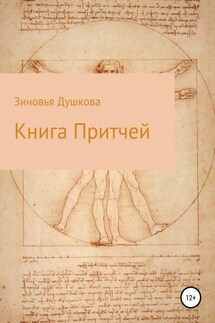Maria (GB English) - страница 29
–No, and the delay in giving me such good news I do not forgive Transit.
–I told Braulio to tell you, because my father thought it was better that way.
–I am as grateful to you for this choice as you cannot imagine; but it is in the hope that you will soon make me a compadre.
Braulio looked most tenderly at his beautiful bride, and, embarrassed, she hurried off to arrange lunch, taking Lucia with her.
My meals at José's house were no longer like the one I described on another occasion: I was part of the family; and without any table apparatus, except the one piece of cutlery that was always given to me, I received my ration of frisoles, mazamorra, milk and chamois from the hands of Mrs. Luisa, sitting no more and no less than José and Braulio, on a bench made of guadua root. It was not without difficulty that I got them used to treating me like this.
Years later, as I travelled through the mountains of Joseph's country, I saw, at sunset, cheerful peasants arrive at the hut where I was given hospitality: after praising God before the venerable head of the family, they waited around the hearth for the supper that the old and affectionate mother was distributing: a plate was enough for each pair of spouses; and the little ones were making pinafores leaning on their parents' knees. And I turned my eyes away from these patriarchal scenes, which reminded me of the last happy days of my youth....
Lunch was succulent as usual, and seasoned with conversation that revealed Braulio and José's impatience to start the hunt.
It was about ten o'clock when, with everyone ready, Lucas loaded with the cold meat that Luisa had prepared for us, and after José's entrances and exits to put cabuya cubes and other things that he had forgotten, we set off.
There were five of us hunters: the mulatto Tiburcio, a labourer at the Chagra; Lucas, a Neivano from a neighbouring hacienda; José, Braulio and myself. We were all armed with shotguns. Those of the first two were shotguns, and excellent, of course, according to them. José and Braulio also carried lances, carefully fitted with spears.
There was not a useful dog left in the house: they all, two by two, swelled the expeditionary party, howling with pleasure; and even cook Martha's favourite, Pigeon, whom the rabbits feared with blindness, stuck out his neck to be counted in the number of the skilful; but Joseph dismissed him with a zumba! followed by some humiliating reproaches.
Luisa and the girls were uneasy, especially Tránsito, who knew that it was her boyfriend who would be in the greatest danger, as his suitability for the case was indisputable.
Taking advantage of a narrow, tangled trail, we began to ascend the northern bank of the river. Its slanting riverbed, if such can be called the jungle bottom of the gully, hemmed in by crags on the tops of which grew, as on roofs, curling ferns and reeds entangled by flowering creepers, was obstructed at intervals by huge stones, through which the currents escaped in swift waves, white gushes and whimsical plumage.
We had gone little more than half a league, when José, stopping at the mouth of a wide, dry ditch, walled in by high cliffs, examined some badly gnawed bones scattered on the sand: they were those of the lamb that had been used as bait by the wild beast the day before. Braulio preceded us, and José and I went deeper into the ditch. The tracks were rising. Braulio, after about a hundred rods of climbing, stopped, and without looking at us motioned for us to stop. He listened to the rumours of the jungle; sucked in all the air his chest could hold; looked up at the high canopy that the cedars, jiguas and yarumos formed above us, and walked on with slow, silent steps. He stopped again after a while; repeated the examination he had made at the first station; and showing us the scratches on the trunk of a tree rising from the bottom of the ditch, he said, after a new examination of the tracks: "This is the way he came out: it is known to be well eaten and well baquiano". The chamba ended twenty rods ahead by a wall from the top of which it was known, from the hole dug at the foot, that on rainy days the streams of the foothills would flow down from there.









